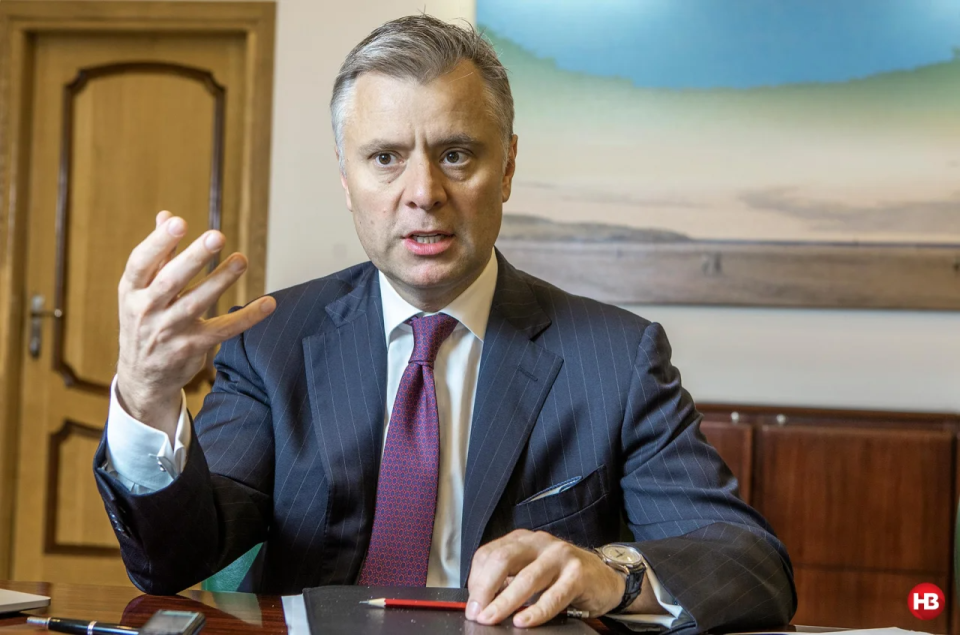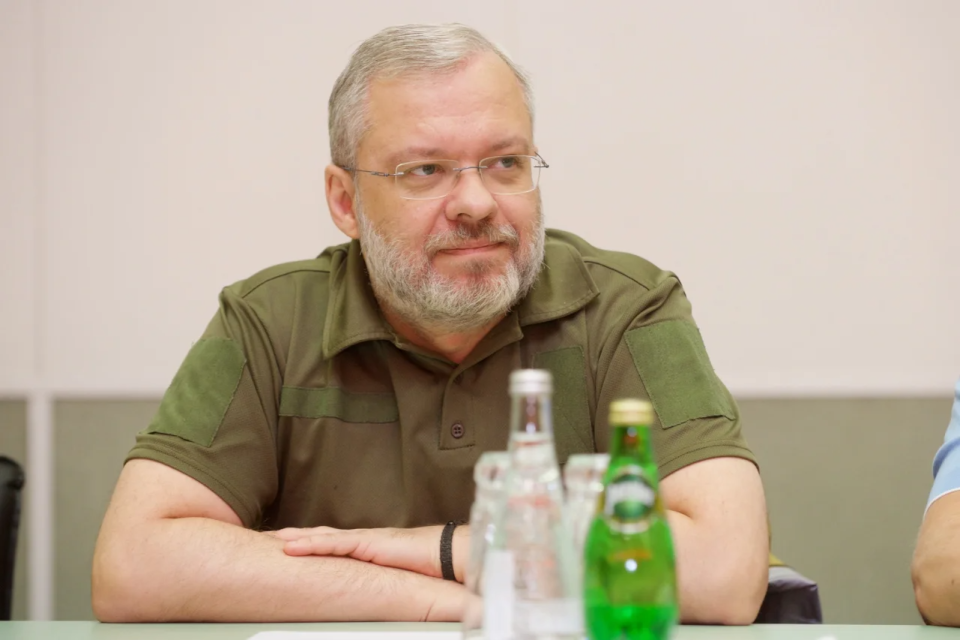Ukrainian government promises to reduce its share in economy, but it’s increasing it instead

But there are more and more signals that the share of the state in Ukraine’s economy will grow. Why is this not a very good sign?
Read also: Rada amends law on privatization — key changes
During a press conference for the Ukrainian media, Shmyhal promised to continue the reforms that Ukraine started before the war.
“This is the reduction of the state’s role in the economy, the continuation of the corporatization reform of state-owned enterprises, as well as the continuation of privatization,” the official said.
According to him, Ukraine’s Cabinet of Ministers is working on identifying strategic enterprises that are not subject to privatization. They will remain in state ownership but will be corporatized.
“Everything else will be transferred very quickly to the State Property Fund for further privatization or management,” Shmyhal emphasized.
Read also: PM Shmyhal kick-starts mass privatization in Ukraine
“Perhaps with increased efficiency through transparent leasing. But privatization is definitely priority No. 1.”
According to the data of Ukraine’s Ministry of Economy, the share of the state in economy as of autumn 2021 was slightly more than 10%. On the one hand, this isn’t very high, but on the other, it’s about 3,500 enterprises, which are mostly less profitable than private ones. The Center for Economic Strategy has therefore recommended speeding up privatization.
This restart of privatization did occur. Last week, the State Property Fund, under the chairmanship of the new head, Rustem Umerov, sold two distilleries in Ternopil Oblast, having gained UAH 220.2 million ($6 million).
Separately, it’s worth mentioning the banking system, when after the nationalization of PrivatBank and Ukrgasbank, the state’s share in this sector approached almost 50%. Ukraine’s Finance Ministry planned for this figure to decrease to 25% by 2025.
But it seems the opposite process is taking place.
NV Business found several significant examples that show that the state’s role in the economy of Ukraine will grow, despite the government’s promises.
In early September, the Kyiv City State Administration surprised everyone by announcing its readiness to buy out the insolvent Bank Sich.
“The city is investing in the bank to create the Municipal Bank of Kyiv on its basis for its further transformation into the city’s universal financial instrument,” said Mykola Povoroznyk, the first deputy head of the Kyiv City State Administration.
The administration plans to allocate almost UAH 1 billion ($27.3 million) from the city budget for the redemption and recapitalization of the bank.
Read also: Kyiv administration looks to buy failing Sich Bank
But it may have a competitor, and not from the private sector either. Forbes Ukraine, citing its own sources, reported that Ukrposhta, which is 100% state-owned, was also interested in Bank Sich.
For several years, Ukrposhta CEO Ihor Smilyanskyi has been trying to create or buy a bank to provide banking services on the basis of post offices - a popular idea around the world, whose proponents say it would increase banking access to those not served by the traditional system. But it seemed that this idea all but disappeared because of the full-scale war. However, in June, the Antimonopoly Committee of Ukraine allowed the state company to buy Alpari Bank. Smilyanskyi confirmed that Ukrposhta was still interested in the purchase.

However, it is already almost October, and nothing more has been said about this plan, though Ukrposhta hasn’t said it wasn’t interested, either.
But even without this, the state’s share in the banking sector is growing. Since the beginning of the war, the National Bank of Ukraine (NBU) has withdrawn two private commercial banks from the market – the already mentioned Sich and Megabank. All state financial institutions continue to work.
Naftogaz: a new old player
Ukraine’s national fossil fuel company, Naftogaz of Ukraine, this year became the biggest example of how private assets become state-owned.
First, the company significantly strengthened its own presence in the retail market of light petroleum products. Following the U.GO gas stations, which worked as part of the largest Ukrainian gas producer, UkrGasVydobuvannya, gas stations of the same name appeared in its other structures. These are gas stations that once worked under the GLUSCO brand. Their owner, Nisan Moiseev, also owned the Prykarpatzakhidtrans diesel pipeline, which politicians and journalists called nothing else than “(Putin’s close ally in Ukraine Viktor) Medvedchuk’s pipe.” Since 2021, this pipeline has been managed by Ukrtransnafta, a company from the Naftogaz group.
This retail project is only “spreading its wings.” But Naftogaz’ gasoline business can significantly expand. In May, the State Bureau of Investigation announced the seizure of the property belonging to Russia’s private-public Tatneft fossil fuel company. And in August, the Bureau of Economic Security announced the seizure of 308 properties belonging to the AMIC gas station network, which was previously owned by Russia’s privately-owned Lukoil firm.
Interestingly, Naftogaz already had experience in this market segment in the early 2000s. But it turned out to be not very successful and ended with the sale of the gas stations it owned at that point.

Gas supplies to the population
In addition, Naftogaz rapidly expanded its presence on the natural gas market after Feb. 24. In June, the company served almost 100% of households in Ukraine. This was a consequence of the difficulties faced by private energy traders – primarily structures related to Ukrainian oligarch Dmytro Firtash.
But this result can hardly be called positive for the state, because Naftogaz is forced to sell gas at a low, fixed price, to ensure affordability for Ukrainian citizens facing the rapid wartime economic downturn. But in Europe and even in Ukraine, market prices are much higher.
Read also: Naftogaz head speaks on challenges in the upcoming cold season
Regional gas distribution companies in limbo
Another important part of the gas business began to migrate from private owners to Naftogaz, though this process is still ongoing. This process concerns about 26 regional gas distribution companies, which are mostly related to Firtash. In early summer, the Bureau of Economic Security seized them from their previous owners and transferred them to the Asset Recovery and Management Agency (ARMA).
Later, their ownership was supposed to be transferred to Naftogaz. However, this has not happened yet.
“A decision was made to transfer the regional gas distribution companies to the management of Naftogaz,” Naftogaz CEO Yuriy Vitrenko said at a briefing.
“But this decision has not yet been implemented. The management of regional gas distribution companies is the Firtash group’s regional gas distribution companies, it is expected will not be amicable to this decision. There are also court decisions that block Naftogaz’s capabilities.”

The state energy trader is an alternative to DTEK
Ukrainian state nuclear power company Energoatom became the main source of financing the activities of the new state energy trader, in an old wrapper. This is the Energy Company of Ukraine (ECU). In August, it was Energoatom that provided it with repayable financial aid worth UAH 500 million ($13.7 million), which ECU must return in three and a half months. Ukrainian Energy Minister Herman Halushchenko inspired this project, an observer of Ukraine’s energy market told NV Business.
The management of the state energy trader estimated that its work would allow many state companies, such as SE Guaranteed Buyer, Energoatom and Ukrenergo, to receive an additional UAH 8.5 billion ($232.4 million) by the end of this year.
“The state is strengthening its position in the field of energy resource trading and increasing competition,” says ECU CEO Vitaliy Butenko.
Thanks to its aggressive policies and management experience, ECU received a share of 50% in the electricity export market from Ukraine to Romania and Slovakia in only its first month of operation, though in early August, private players controlled nearly 100%.
The DTEK energy holding, owned by Ukrainian oligarch Rinat Akhmetov, has suffered the greatest loss of market share. Butenko, as it happens, worked in DTEK from 2007 to 2021. Therefore, it is possible that the establishment of a state energy trader, which will become a key player in the Ukrainian market, is a personal challenge for him.
Read also: Kyiv mayor briefs public on Kyiv’s defenses and energy security
But NV Business’ sources in the market said that despite certain advantages that state-owned companies have indeed received, there are still many risks in Butenko’s activities. Firstly, the success of ECU’s work at the initial stage depends almost entirely on one person –Butenko. Secondly, there are almost no control mechanisms for what will happen to Ukrainian electricity after its sale to a foreign counterparty. That is, the state trader may receive a high, but not the highest possible, price. Sources familiar with the ECU’s activities say these risks will be reduced thanks to the establishment of stable and transparent management mechanisms and cooperation with large-end consumers, rather than foreign intermediaries.
These are only the most visible examples of the strengthening of the state’s role in the economy. What else? The ARMA state agency, which manages the seized companies, is the largest state holder of private assets. A large share is the property and assets of businessmen related to Russia. In the future, these assets should also be transferred to the management of state companies. Or be privatized.
But for now, most of them are in limbo.
Read the original article on The New Voice of Ukraine

